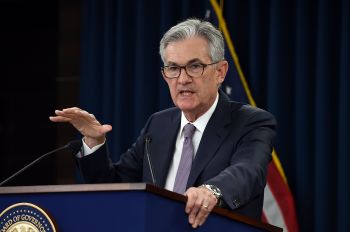Report: Fed to curb banker pay
TEXT OF INTERVIEW
Kai Ryssdal: Congress is talking about new regulations for the financial industry. The White House is talking about new regulations for the financial industry. Largely unencumbered by politics as it is, the Federal Reserve might actually be the first to do something about new regulations for the financial industry. The Wall Street Journal reported today that the Fed is drafting a plan to clamp down on Wall Street bonuses.
Damian Paletta had the story in the paper this morning. It’s good to have you with us.
Damian Paletta: Thank you for having me.
Ryssdal: What, as you understand it, is the Fed’s plan here?
Paletta: So the Fed is going to propose some guidelines that are going to be pretty sweeping and it’s going to affect more than 5,000 banks in the country. But they’re really going to focus on the 25 biggest banks.
What they’re going to do is they’re going to look closely at the compensation packages banks pay their employees. Not necessarily on the level of money that employees are paid, but what they’re going to look at is the incentives that banks give their employees to take risks. So for example, if a bank pays their loan officers a lot of money just to originate loans, but not necessarily on whether those loans perform, then that’s the kind of thing that the regulator’s going to be taking a tougher look at now.
Ryssdal: We all understand that over the past year, year and a half the Fed has become a more powerful place, but can they just do this? Can they plop regulators down inside these banks and start setting forth policy?
Paletta: The Fed thinks they have this authority as the safety and soundness regulator of these banks. Their interest is to keep these banks safe and sound and from failing. And what a lot of people have said happened over the last year is that these compensation packages incentivize extremely risky behavior that threatened the safety and soundness of banks. So this is something that folks have been taking a much closer look at. Congress is also looking at doing something in this area, but the Fed thinks they can go ahead and act unilaterally here.
Ryssdal: That aspect of it though — the Fed going it alone — as gotten some criticisms from Democrats and Republicans up on the Hill. What’s your taken on what Congress is going to say about this?
Paletta: Well it’s really interesting. We’ve already heard from a couple Republicans today that have slammed this move by the Fed and labeled it extremely political. The Democrats have really been pushing the Fed to be much more aggressive with the banks that are overseen. But Republicans have been very critical.
There’s a broader question of course about the future role of the Fed. There’s a lot of skepticism whether or not there should be a lot of power centralized within the Federal Reserve. They don’t really answer to Congress, they don’t have elected officials. But this is a question that’s going to play out over the next several months, as Congress looks at future regulations of financial markets.
Ryssdal: Compensation on Wall Street used to be reasonably conventional. You got paid according to what you did and according to your seniority and salary structure and then we saw these bonuses come up. Any belief that this might put the genie back in the bottle and we might get back to structured compensation on Wall Street?
Paletta: It’s a great question. I think it’ll take some time to see how this works. If the Fed puts these principles out and the banks follow them pretty closely, then maybe we’ll get to a more sort of conventional, conservative type of pay structure. Like you said through, the banks might get creative and try to find ways around this and also we’re going to be dealing with complicated issues of U.S. banks competing with their foreign counterparts and are the rules the same here as they are overseas? Those are all really difficult questions that’s going to take to settle.
Ryssdal: Are we missing the point by concentrating so heavily on bonuses and pay as a focus of regulation, while not maybe reining in some of the actual behavior about ratings agencies and slicing and dicing these mortgage-backed securities? I mean, are we missing the point?
Paletta: I think what the regulators are trying to do is put together a package of issues that need to change, they feel, on Wall Street, in order for this financial system globally to perform in a safe and sound way. So there’s going to be a lot of review of ratings agencies and of banks and their lending practices and how much capital they hold in reserves, for sure. I think this issue, quite frankly, is so much easier for people to understand — how much executives get paid and why they’re paid — that it’s easier for the Fed to move this issue forward now.
Ryssdal: Damian Paletta, he’s a reporter for The Wall Street Journal. Had a piece in the paper today on the Federal Reserve and corporate pay on Wall Street. Damian, thanks a lot.
Paletta: Thank you.
There’s a lot happening in the world. Through it all, Marketplace is here for you.
You rely on Marketplace to break down the world’s events and tell you how it affects you in a fact-based, approachable way. We rely on your financial support to keep making that possible.
Your donation today powers the independent journalism that you rely on. For just $5/month, you can help sustain Marketplace so we can keep reporting on the things that matter to you.


















